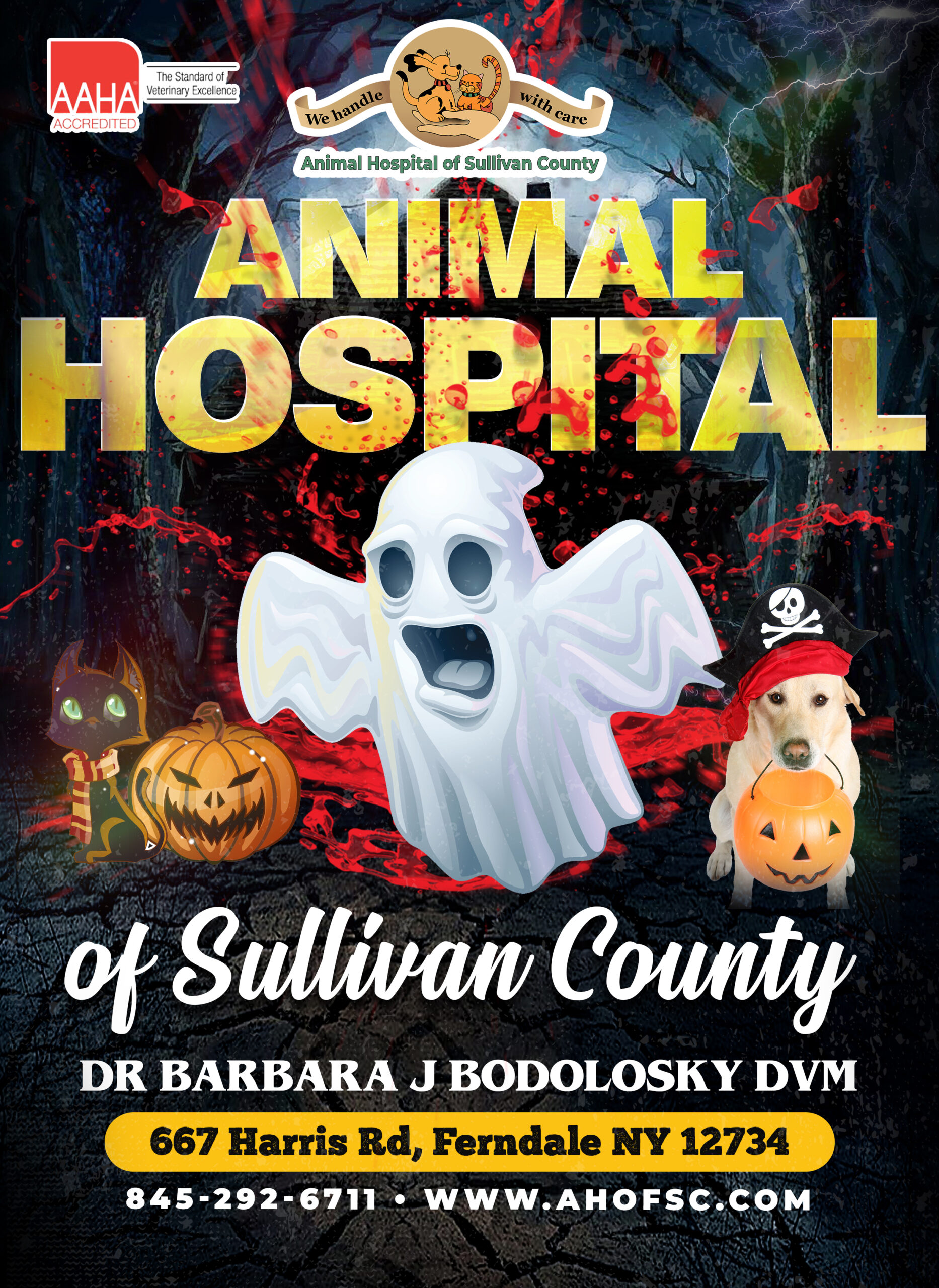
Halloween Pets
Halloween and Your Pets: Halloween can be a fun-filled holiday for everyone in your household, but be sure to take some precautions when it comes to your pets. If you’re like me, I’m betting you’ve noticed that Halloween costumes and decorations start overflowing in the aisles of retail stores about September first. In more recent years, it seems to me that the amount of Halloween-related merchandise rivals that of Christmas! So, I did a little digging, and—sure enough—there are some experts out there who back my theory up. Witness this, for example, from Investopedia.com: “Halloween is the second-biggest retail holiday in the U.S., behind only Christmas,” Investopedia’s Nathan Reiff notes.” Americans spent more than $10.1 billion on Halloween in 2021, setting a record.” With a staggering amount of coin to be made, I’m sure it comes as no surprise that there are even Halloween costumes available for our pets! And while many folks enjoy the tricks, the treats, the gatherings, and the all-in-fun scares the season is famous for, those of us who care for our animal companions might want to take a minute or two to think about making sure our furry friends get through Halloween in a way that keeps them safe. How so? Well, to begin with, the American Veterinary Medical Association (avma.org) has these suggestions (which I’ll take the liberty of augmenting a bit): 1. “Don’t feed pets Halloween treats.” Generally speaking, we all know chocolate can be harmful—or fatal—to our pets. But other Halloween confections aren’t good, either. For example, raisins can cause kidney issues. And the AVMA reports, other “candy may contain substances toxic to pets, such as chocolate or xylitol (a common sugar substitute found in sugar-free candies and gum).” My advice? Just don’t share any Halloween treats with your animal companions. And watch the kids—they might not be as vigilant as you are in keeping no-no’s away from Fido. ·2. “Make sure your pets have identification (microchip, collar, and ID tag) that will make it easy for someone to contact you and return them home in case they escape through an open door while you’re distracted with trick-or-treaters.” That’s not just good advice for Halloween; it’s best to take such a precaution all year long. 3. “Keep lit candles, jack-o-lanterns, and other Halloween decorations out of reach of pets.” Remember how excited your pet can become? And how running into an end table might result in a spilled drink? Well, this is kind of the same thing…but with fire. As the ASPCA (aspca.org) reminds us, “Curious kittens are especially at risk of getting burned or singed by candle flame.” We want to avoid that. 4. “Keep all human costume pieces away from pets, along with glow sticks, decorations, batteries, and other holiday items.” There is really no need to risk poisoning or choking your unsuspecting pets in this way. 5. If you plan on costuming your pet, “Take time before Halloween to get your pet accustomed to the costume, and never leave a costumed pet unsupervised.” Sure, she might look adorable dressed as a mermaid, but keep an eye on her. You want her around for next Halloween, too. 6. “If your pet is wary of strangers or has a tendency to bite, put them in a room away from the front door during trick-or-treating hours, or provide them with a safe hiding place.” This is also good advice year-round for pets who might snap when surprised or frightened. And if you’re having a Halloween party, put a note on the door advising guests that the pets are resting in there—please do not disturb. In addition to the AVMA points noted above, the Humane Society (humanesociety.org) has a few suggestions of their own. To begin with, they point out that Halloween can be stressful for our pets. “A dog’s natural instinct is to protect their home or to alert you that a stranger has arrived, while cats typically prefer a quiet environment with their family,” they write. “Trick-or-treaters continually knocking on the door or ringing the bell can be very stressful to both dogs and cats.” With that in mind, the Humane Society reiterates the AVMA’s advice…put your pet in a quiet room. Dogs might even prefer to be crated. Another potential problem the Humane Society reminds us about has to do with pumpkins. “Pumpkin can be good for dogs and cats,” they correctly say, “but too much can cause digestive issues. Rotting pumpkin may harbor bad bacteria; keep jack o’ lanterns safely away from becoming a holiday snack.” Finally, they make a valid point about the costumes humans might be wearing. “Masks and costumes change how people look and smell to a pet,” they note, “so even familiar people may become frightening.” All of this in addition to the wires, the water-filled vats (if we’re bobbing for apples), the potentially sharp plastic costume accessories, the discarded candy corn… Lots to think about, right? So, what if the unthinkable happens—your dog manages to wolf down some chocolate in spite of your best efforts? Well, that’s why we’re here. Get in touch with your vet immediately. Let us know your pet’s weight, the type of chocolate they ate, how much if it, and when they ate it. We’ll be able to help you from there. It might be that you can treat your pet at home with some activated charcoal. Or we might recommend a trip to the Animal Hospital. But please call. What if your pet is burned? You’ll want to rinse the area immediately with cool water and call us. It’s not always obvious how badly burned your pet might be, so we’re going to want to have a look. Let us know how the puppy was burned. Flame? Stove? Chemical? Hot water? And also, how long he was exposed. We may use imaging to evaluate the damage. Treatment will be based upon that evaluation. Again, it sounds like a lot. I’m not trying to be an alarmist, but a bit of forethought goes a long way. Combined with some preparation and a little diligence, Halloween can be a fun time for everyone in the household—humans and animal friends alike! Now, let’s go bob for those apples… Animal Hospital of Sullivan County Dr Barbara J Bodolosky DVM 667 Harris Rd Ferndale NY 12734 (845) 292-6711 www.ahofsc.com


